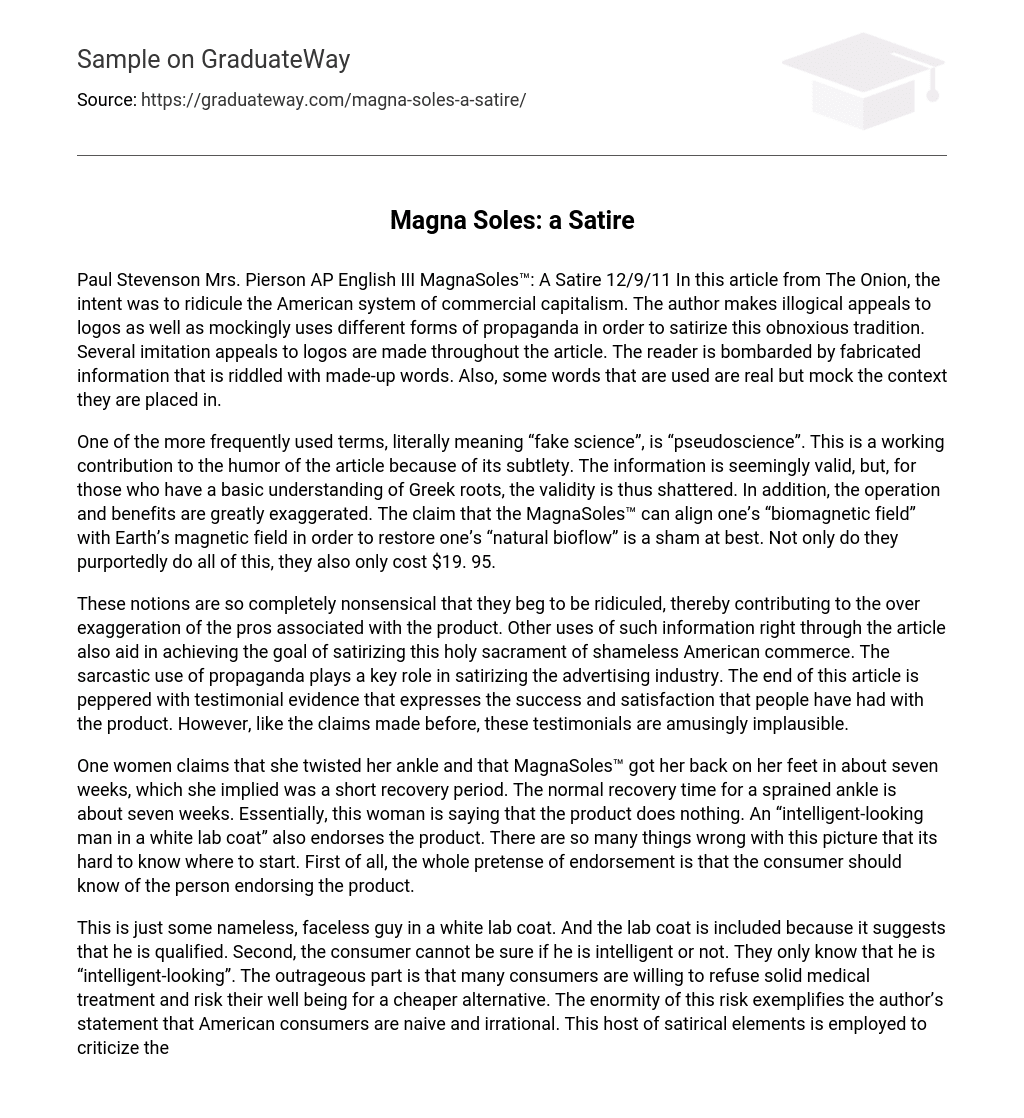The Onion aimed to satirize the American system of commercial capitalism through illogical appeals to logos and cleverly incorporating various forms of propaganda that mock this unappealing tradition. The article presents numerous imitative appeals to logos, inundating the reader with fabricated information filled with made-up words. Additionally, certain genuine words employed in the text sarcastically undermine their intended significance.
One way to describe something that is not supported by scientific evidence is by using the term “pseudoscience,” which literally means “fake science.” This term adds humor to the article because of its cleverness. Although the information may appear to be valid, those with a basic knowledge of Greek roots will realize that it is not. Additionally, the claims made about the MagnaSoles™ are greatly exaggerated. They suggest that these insoles can realign a person’s “biomagnetic field” with Earth’s magnetic field and restore their “natural bioflow,” but this is nothing more than a deception. Furthermore, these insoles are also surprisingly inexpensive at just $19.95.
These ideas are so absurd that they invite mockery, adding to the exaggerated benefits of the product. The article uses similar information to further satirize this sacred symbol of shameless American business. Sarcastic propaganda is crucial in satirizing the advertising sector. The article concludes with testimonials that highlight the product’s success and satisfaction. However, like the previous claims, these testimonials are comically unrealistic.
A woman stated that MagnaSoles healed her ankle injury in approximately seven weeks, which she regarded as a speedy recovery. Nevertheless, the usual healing period for a sprained ankle is around seven weeks, indicating potential ineffectiveness of the product. Moreover, an individual described as an “intelligent-looking man in a white lab coat” also endorses the product. Various factors complicate addressing this scenario. Primarily, the endorsement assumes consumers are already acquainted with the endorsing person.
The author uses a nameless, faceless guy wearing a white lab coat in order to convey his qualification. The consumer is unsure of the guy’s intelligence but can only determine that he appears intelligent. The shocking aspect is that numerous consumers are willing to jeopardize their well-being for a less expensive alternative and reject proper medical treatment. This significant risk highlights the author’s argument that American consumers are naive and irrational. All of these satirical elements are utilized to critique the American system of commercial capitalism.
This criticism highlights the absurdity of everyday practices and their ingrained nature in people’s daily routines. The essay satirically aims to remind the public of the true nature of marketing: a mix of deceptions, subjective viewpoints, and potential financial benefits. Therefore, when encountering similar commercials, pay attention to whether they are promoting peripheral items like the Ginsu Knife, as it will make you realize that you supposedly require it despite being perfectly fine without it.





